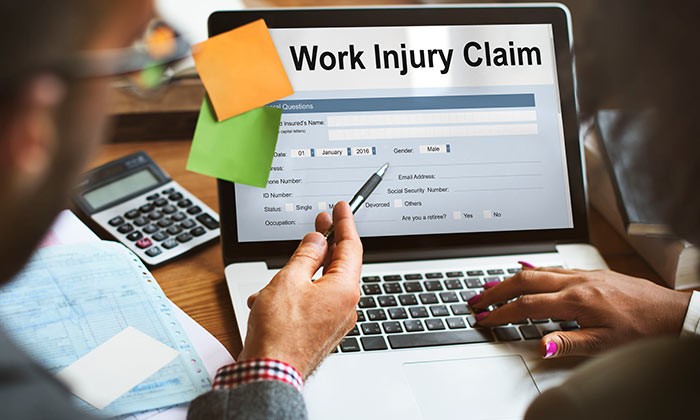Work injury claims Ireland

Car accident claims Ireland : The three types of personal injuries mentioned above are the most common, but a personal injury claim need not be the result of an immediate physical injury sustained in an accident. Symptoms of whiplash can manifest many days after a person has been involved in a road traffic accident, industrial diseases cause by the inhalation of hazardous airborne substances may not become apparent for many years and brain damage sustained in a slip and fall accident could also take many years to manifest.
You can find out how much is your injury compensation claim worth by submitting your claim for a personal injury to the Injuries Board. Your case will be assessed and personal injury compensation amounts will be calculated on your behalf, in line with the Book of Quantum. However, if you want to find out how much compensation can be claimed for your injury before you start the legal process of recovering compensation for a personal injury – as well as finding out how you can maximise the probability of recovering your full entitlement to compensation – your best option is to speak with a personal injury solicitor before contacting the Injuries Board. A solicitor will conduct an impartial assessment of your case and you will find out if you are entitled to make a claim, and if so, how much is your injury compensation claim is likely to be worth.
As laid out in the Courts and Civil Liability Act 2000, the Statute of Limitations in Ireland for personal injuries is the timeframe in which an injured party can order legal proceedings against the criminal or negligent party. Those potential plaintiffs, according to the most recent amendment of the Statute of Limitations Ireland Act (2004), must initiate a claim for compensation within two years of the date of knowledge of their injuries. However, there are numerous exceptions to this rule – for example, claims involving medical negligence or children do not adhere to this two-year regulation. Read extra details on Hit-and-run accident compensation.
In Ireland, the Statute of Limitations serves to limit the period of time after an accident occurs, or the injured party is made aware of injuries, for which a plaintiff can make a claim for compensation. In most cases, the Statute is a period of two years from that date of knowledge, although when exactly is considered the “date of knowledge” can vary depending on the nature of the injury or the personal circumstances of the claimant. With the Statute of Limitations in mind, it is advised that those seeking compensation contact legal counsel as soon as possible after an accident occurs. This allows for adequate time to initiate court proceedings or file with the Injuries Board.
If the claimant has admitted to contributory negligence, any negotiations between the plaintiff and the respondent will usually be protracted and claims will take significantly longer to resolve than other, less complex cases. Ordinarily, this is a direct result of the conflict between the parties as to how much negligence will be assigned – the insurers or legal representatives of the accused will want to assign the claimant as high a percentage of the liability as possible. In these instances, it is particularly important that those seeking compensation engage with a solicitor who will negotiate for their best interests. Read extra info on http://www.personal-injury-ireland.com/.
It is important to consult a solicitor as soon as possible after an accident has occurred. This facilitates the early collection of evidence, including photographs of the workplace, engineering inspections, interviews with colleagues and medical examinations. This will help build a case, and it may transpire that other such injuries have happened before under similar conditions – which will help to prove the employer’s negligence. In Ireland, it is rare that work injury cases will proceed to the courts as insurance companies usually wan to settle the claim quickly. If it is shown that the employer was completely at fault for the accident and injury, it will help the claimant’s solicitor negotiate a full and fair settlement of compensation. Though the cases are usually filed with the Injuries Board, it is rare that they will reach resolution through the body.
It is also important to report any accidents to the Gardai, particularly if it resulted in an injury. If the Gardai have been called shortly after the accident, and no one was injured, they may choose not to attend the scene of the accident. In this case, it is still advisable to go to the Garda Station with details of the accident, including names and insurance details of all parties involved. However, it is still essential to call the Gardai, even if no one is injured, as this can then be used by the solicitor to support your claim. In the event of injury, it is a requirement that the Gardai attend the scene. There, they will collect evidence such as statements from eyewitnesses, sketches etc.. The Gardaí will then decide whether or not the case will be referred to the DPP for prosecution. Read extra info at http://www.personal-injury-ireland.com/hit-and-run-accident-compensation/.